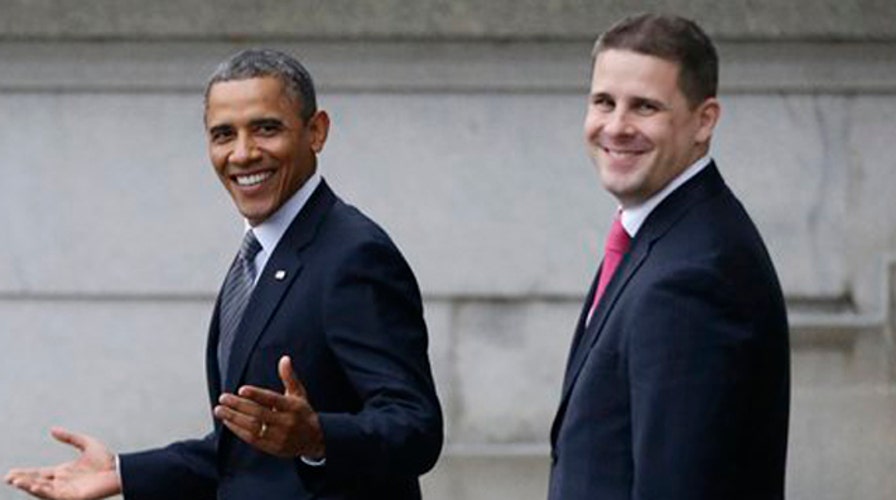Political Insiders 4/8/2013
Pat Caddell and John LeBoutillier discuss unemployment and the slow economy, Obama's decline and Hillary Fever heating up for 2016
The White House tried Sunday to win support for President Obama’s forthcoming budget, arguing the plan is a balanced approach to economic prosperity and warning Republicans about stonewalling negotiations and pushing a “rejected” Romney plan.
“Right now, the approach of many Republicans, particularly the leadership in the House, is my way or the highway,” senior White House adviser Dan Pfeiffer told “Fox News Sunday.” “Their view is the only acceptable plan is to try to … essentially enact the Romney economic plan. The American people rejected that, and Republicans shouldn't be doubling down on it.”
The White House effort comes three days before Obama releases his 2014 budget, which is expected to include a mix of tax increases and cuts to such entitlements as Social Security and Medicare.
“You can do both,” Pfeiffer said on ABC’s “This Week.” “That’s what you’ll see. … What we won’t do is cut our way to prosperity.”
However, the outline of the plan has already been criticized by Republicans and some of the president’s staunchest supporters.
The release of the budget Wednesday, which will be followed by Obama meeting for dinner with Senate Republicans, is just part of a busy week in Washington.
Congress returns from a two-week break with the Senate attempting to reach a bipartisan agreement on immigration-reform legislation, and the leaders of the Democrat-controlled chamber trying to finish a gun-control proposal that might or might not include the contentious universal background checks for buyers.
Pfeiffer told Fox the meeting with Senate Republicans is simply an attempt to find a “caucus of common sense,” not end run leaders of the Republican-controlled House.
Last week, House Speaker John Boehner, R-Ohio, said Obama’s budget blueprint holds reforms “hostage” to tax increases. Organized labor also expressed its disappointment in the plan.
"The president should drop these misguided cuts in benefits and focus instead on building support in Congress for investing in jobs," AFL-CIO President Richard Trumka said.
Obama supporters disagree particularly with the part of his spending plan that calls for a new inflation formula that would reduce the annual cost of living adjustments for a range of government programs, including Social Security and benefits for veterans.
Still, South Carolina Republican Sen. Lindsey Graham expressed optimism Sunday about the plan, suggesting it was at least a starting point toward an elusive, long-term budget deal between Democrats and Republicans.
"The president is showing a little bit of leg here,” Graham said on NBC’s “Meet the Press.” “This is somewhat encouraging. We're beginning to set the stage for the grand bargain.”
Among the highlights of the president’s plan is spending cuts and tax increases that would reduce the deficit by $1.8 trillion over 10 years, replacing the $1.2 trillion in automatic spending cuts, known as sequester, over the same period.
The proposal also is expected to include new spending for public works projects, early education and job training, as well as $580 billion in new taxes that Republicans oppose.
Counting reductions and higher taxes that Congress and Obama have approved since 2011, the 2014 budget would contribute $4.3 trillion to total deficit reduction by 2023.
On Saturday, the president said his budget was not his “ideal plan,” but it was a compromise that he would be willing to accept.
The House and Senate have already passed their own budget plans. The House plan cuts $5.7 trillion in spending and balances the budget in 10 years while the Senate plan increases taxes by $1 trillion.
The Associated Press contributed to this report.





